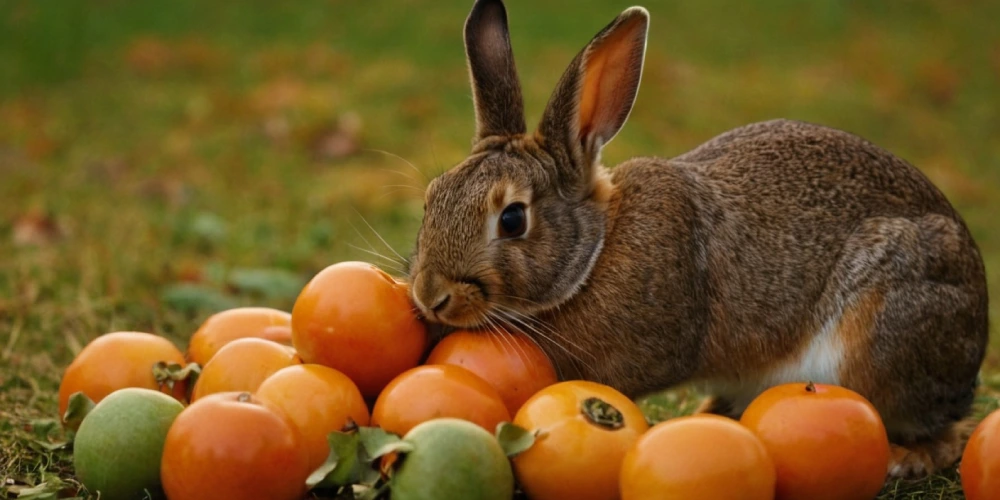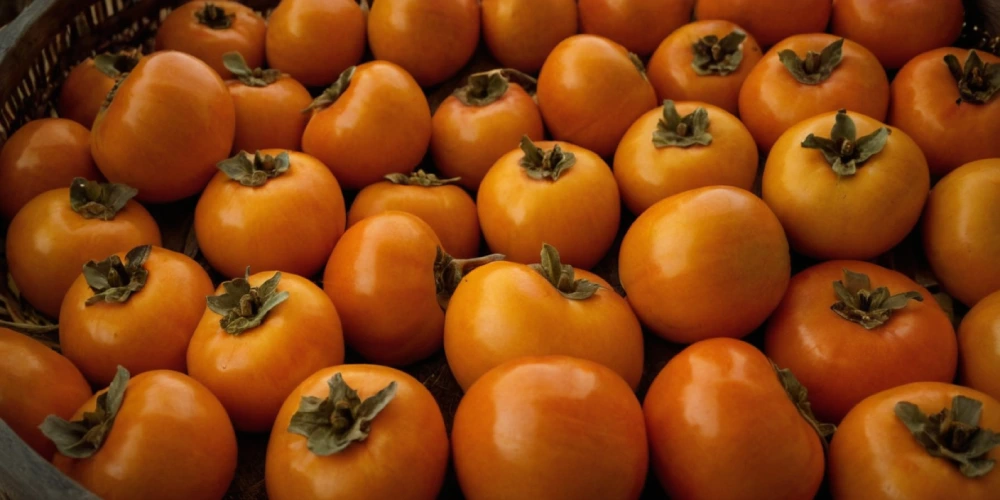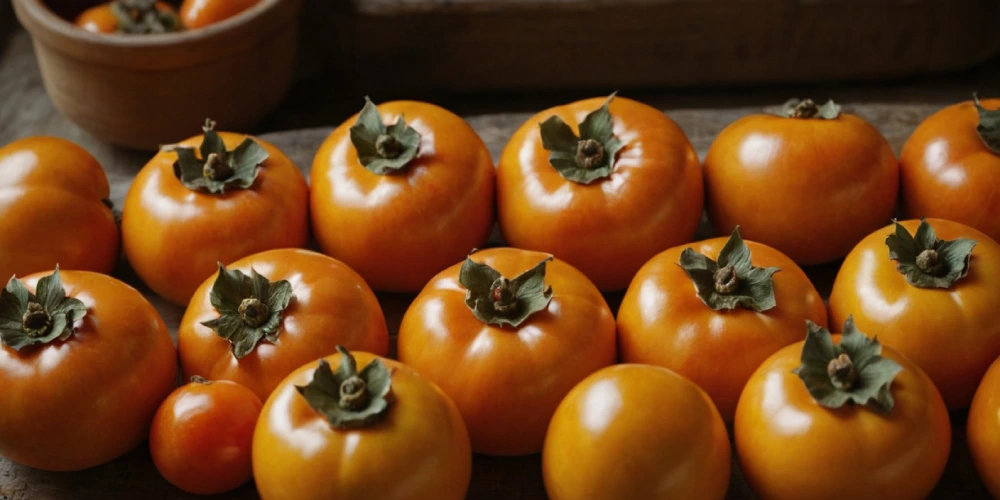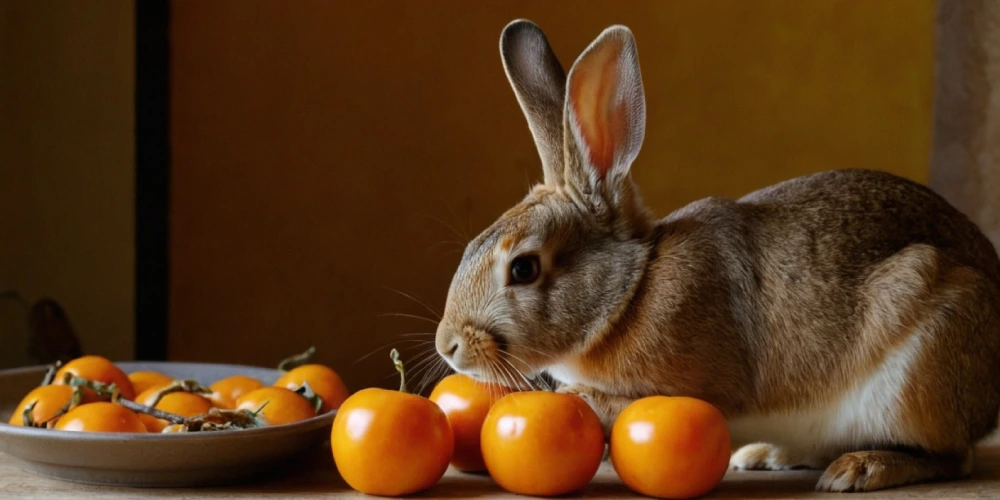
Can Rabbits Eat Persimmons?
Rabbits are adorable and curious animals that enjoy a variety of foods, but their delicate digestive systems require careful attention. Their main food as herbivores is hay, leafy greens, and a tiny bit of specially prepared pellets. While treats like fruits can occasionally be added to their diet, it’s crucial to know which ones are safe. Persimmons, a sweet and vibrant fruit enjoyed by many humans, often raise questions among rabbit owners. Can this fruit be a healthy treat for your furry friend, or does it pose risks?
This article explores everything you need to know about feeding persimmons to rabbits. From their nutritional benefits to potential risks and the correct way to serve them, we’ll guide you in making an informed decision. Additionally, we’ll provide alternatives for safe treats and tips on how to keep your rabbit’s diet balanced and healthy.
Understanding your rabbit’s dietary needs is essential for their well-being. By the end of this article, you’ll know how to safely include persimmons in your rabbit’s diet—if at all—and ensure they stay happy and healthy while enjoying the occasional treat. Let’s dive in and learn more about whether persimmons are a good choice for your rabbit.

What Are Persimmons?
Persimmons are sweet and juicy fruits that grow on trees. There are two main types: astringent and non-astringent. While non-astringent kinds are sweet and ready to eat, even if they are firm, astringent persimmons taste bitter when they are not quite ripe. Persimmons are orange and look a bit like tomatoes, but their flavour is much sweeter and richer.
This fruit is popular for humans because it is packed with vitamins, minerals, and fiber. But just because something is healthy for people does not always mean it is good for rabbits. Let’s take a closer look at whether this fruit is a good choice for your rabbit.
Are Persimmons Safe for Rabbits?
Yes, rabbits can eat persimmons, but only in small amounts and occasionally. While persimmons are not toxic to rabbits, they are very high in sugar. A rabbit’s digestive system is sensitive, and too much sugar can lead to problems like diarrhea, weight gain, and an upset stomach. Persimmons should always be a minor part of your rabbit’s diet.
Rabbits are meant to eat mostly hay, fresh vegetables, and a small amount of pellets. Fruits like persimmons can be offered as a treat, but they should not replace the main foods in your rabbit’s diet. Treats should make up at most 5% of what your rabbit eats.
If you want to give your rabbit persimmons, make sure to do it the right way. This means offering only small slices and removing the seeds and skin.

Nutritional Benefits of Persimmons for Rabbits
Persimmons contain some nutrients that can be beneficial for rabbits in small amounts. Here are a few key nutrients found in persimmons and how they might help your rabbit:
Vitamin A
Vitamin A is essential for a rabbit’s overall health. It helps maintain good eyesight, a healthy immune system, and strong skin. Persimmons are a good source of this vitamin, but rabbits usually get enough vitamin A from their regular diet.
Vitamin C
Vitamin C helps the immune system work and protects cells from harm. While rabbits produce their vitamin C naturally, a small boost from fruits like persimmons can be helpful, especially for older or stressed rabbits.
Fiber
Persimmons contain dietary fiber, which is important for keeping a rabbit’s digestive system running smoothly. However, the fiber in persimmons is not as beneficial as the fiber in hay, which should always be the main part of your rabbit’s diet.
While persimmons do have these benefits, it is important to remember that they are not essential for your rabbit. Rabbits can get all the nutrients they need from hay, leafy greens, and specially formulated pellets.
Risks of Feeding Persimmons to Rabbits
Although rabbits would find persimmons to be a delicious delicacy, they carry significant hazards. Here are a few reasons why you should be cautious:
High Sugar Content
Persimmons are very sweet, which makes them appealing to rabbits. If fed too much, its high sugar content can cause health issues, too. Too much sugar can cause digestive upset, obesity, and even dental issues in rabbits.
Risk of Digestive Problems
Rabbits’ digestive systems are very sensitive, and they are unable to handle foods that are high in fiber and low in sugar. Feeding too much or too often persimmon can lead to diarrhea, gas, and bloating.
Seeds and Skin
The seeds and skin of persimmons can be difficult for rabbits to digest, and they may also pose a choking hazard. Always remove the seeds and skin before offering persimmons to your rabbit.
To keep your rabbit safe, it is best to treat persimmons as an occasional snack rather than a regular part of their diet.
How to Safely Feed Persimmons to Rabbits
If you decide to give your rabbit persimmons, follow these steps to ensure their safety:
- Choose Fresh, Ripe Persimmons: Always pick fresh, ripe persimmons. Avoid any that are overripe, underripe, or rabbit’s. These can upset your rabbit’s stomach.
- Wash Thoroughly: Wash the persimmon to remove any dirt, pesticides, or chemicals that might be on the skin.
- Remove Seeds and Skin: Cut the persimmon thinly and remove the skin and seeds. Only the soft, fleshy part of the fruit should be given to your rabbit.
- Offer a Small Amount: Start with a small slice about the size of your thumb. Watch your rabbit to see how they react. If they enjoy it and do not have any digestive issues, you can offer it as an occasional treat.
- Monitor Your Rabbit: After feeding persimmons, monitor your rabbit for any signs of discomfort, diarrhea, or unusual behavior. If you notice any problems, stop feeding persimmons and consult your vet.

How Often Can Rabbits Have Persimmons?
Rabbits should only have persimmons occasionally as a special treat. A small slice once or twice a week is more than enough. Moderation is quite important since too much fruit can lead to health issues. Rabbit’s the majority of your rabbit’s diet should be hay, fresh greens, and a small amount of pellets.
If you are still determining how much persimmon to give, consult your veterinarian for advice. They can help you decide what is best for your rabbit based on their size, age, and overall health.
Alternatives to Persimmons for Rabbits
Suppose you want to offer your rabbit a sweet treat but are still deciding about persimmons. In that case, other fruits are safe for rabbits to eat in moderation. Here are a few alternatives:
Apples
Apples are a favorite treat for many rabbits. Before offering them, make sure to remove the seeds and core.
Strawberries
Strawberries are sweet and juicy, making them a great occasional snack. Feed them in small amounts and remove the green tops if necessary.
Blueberries
Blueberries are small, soft, and easy for rabbits to eat. They are also packed with antioxidants.
Bananas
Bananas are very sweet, so they should be given sparingly. A small slice now and then can be a delicious treat for your rabbit.
Conclusion
In conclusion, rabbits can eat persimmons, but they should only have them in small amounts and as an occasional treat. Persimmons are high in sugar, so they are not a suitable regular food for rabbits. Always take out the skin and seeds and keep a close eye on your rabbit if it shows any signs of going off.
Your rabbit’s health and happiness depend on a balanced diet that is high in fiber and low in sugar. While persimmons can be a fun treat, their primary food should always be hay, fresh greens, and pellets. If you are rabbit about introducing new food to your rabbit’s diet, consult a veterinarian for guidance.
FAQs
1.Can baby rabbits eat persimmons?
No, baby rabbits should not eat persimmons. Their digestive systems are too sensitive, and they need a diet focused on hay and their mothers’ milk or pellets, which are specially made for young rabbits.
2.What happens if my rabbit eats too much persimmon?
If your rabbit eats too much persimmon, they may experience diarrhea, bloating, or other digestive problems. In severe cases, they could develop obesity or dental issues.
3.Can rabbits eat dried persimmons?
No, dried persimmons are not recommended for rabbits. They are even higher in sugar than fresh persimmons and may cause digestive issues.
4.Are the leaves of the persimmon tree safe for rabbits?
Persimmon leaves are not toxic, but they are not recommended as food for rabbits. It is best to stick to foods specifically known to be safe and healthy for rabbits.
5.How do I know if a fruit is safe for my rabbit?
Before giving your rabbit any fruit, research it thoroughly or consult your vet. To prevent your rabbit’s stomach from becoming upset, always give it new things slowly and in small amounts.
